|
As The 410 Bridge approaches its 14th year, I’ve lost count of how many trips to Kenya I’ve made. But this week was special…
I had the privilege of joining a team of five marketplace guys from North Point Community Church, who’ve spent the last 12 months in a pilot program called Frontier. Frontier is all about integrating faith and work. Doug Hurley (NPCC pastor) leads the ReWORK ministry and piloted Frontier. Our 9-day trip was the capstone of their year-long commitment. Our week together was all about the marketplace. We visited one of 410 Bridge’s largest communities – Kiu (pronounced, “Q”). We asked graduates of 410’s Business Start-up Training (BST) if they’d be willing to spend a couple days with a US business person as we worked in their businesses. The response was overwhelmingly positive and the community leaders selected several businesses for the guys to visit. The idea was to have each team member spend a couple days in the life of a Kiu business owner. One team member per business. They’d spend the entire day doing whatever the business owner did. And “whatever” means whatever… Serving customers, delivering goods, stocking shelves, breaking down inventory, preparing food, etc. Whatever… The objective for Day #1 was to learn about the business and to learn about each other. The tricky part was that the US team wasn’t allowed to give advice the first day; even if they were asked. As you might imagine, not giving advice can be a difficult thing for an American. We have this love affair with efficiency. We drive toward increased productivity and growth. We see a gap and we want to immediately fill it. We have an idea on how to ‘do it better’ and we almost can’t help but immediately share our opinion. There’s nothing wrong with any of that and it’s all well-intentioned, but the rule was ‘no advice.’ Just work together. Learn. Listen. Talk. Share. That’s it… The guys were blown away. What they learned was that each of their hosts started their business with their own capital. The largest investment was $100. The smallest was $1 (four cabbages). It’s hard for us to imagine starting a business with just a buck, but they did. And today…? Today they’re earning hundreds, and in some cases, thousands of dollars each month. Of the businesses we visited, the least profitable business is earning 10 times what they made prior to the training. In a couple cases, multiple businesses have been started. They’re now paying school fees for their children to attend secondary school and college. One business owner even sponsors two other children in Kiu to attend school. They’re employing their neighbors. They’re driving the economy in Kiu and no longer look to outsiders to support them. They have choices. They have dignity, purpose and freedom. The guys also saw the integration of faith in the marketplace. It was everywhere. From the names of the businesses – Hope Enterprises and The Joy Shop – to the way they interacted with their customers. Their gratitude to God for the training and for their businesses was evident, and in everything. For them, it was an answer to prayer. As I talked to the guys at the end of the week, they spoke of seeing the long-term effectiveness of The 410 Bridge model. They saw firsthand that the people of Kiu are not a set of problems to be fixed. They are the solution. Simply addressing their physical problems – water, education, health and economic development – won’t solve their poverty problem. That’s why 410 doesn’t define poverty as a material problem, we believe it’s an issue of worldview. We also spoke about how the traditional methods of engaging the global poor are broken. Doing for people, instead of with people… Giving away used clothes, used shoes, and toothbrushes. Doing what we think they need, when we think they need it; after all, it’s our money and our idea so it should be our way, right? All of that does more to strip them of their dignity and disempower them, than provide an opportunity for lasting life change. I recently heard Tim Elmore (Habitudes) talk about this is the context of raising kids, but his point conveys to 410’s work as well. He said, “When people feel their effort is hopeless, they begin to feel helpless. But when people see even the smallest progress, they’ll exert more effort.” Our team of marketplace professionals saw that in living color this week. The 410 Bridge’s BST training has resulted in over 2,500+ new businesses in Kenya. That number is increasing every year and we’re looking for marketplace pro’s in the US to spend a week in the life of business owners in 410 communities. If that’s you, and you want to use your gifs to serve others, send us a note at [email protected]. Special thanks to my friend Doug Hurley at North Point Community Church for leading well. Thanks for allowing me to join you and your team!
0 Comments
I read a book about 20 years ago called Finishing Strong by Steve Farrar. I don't remember the exact statistic, but it made the case that a small percentage (10%, I think) of men that work in ministry finish the last chapter of their lives without a significant moral, family, or financial failure.
The 90% that didn't finish strong, put their work ahead of their marriages and their families and paid the price. At the time, that little message scared me. If only 10% of men...and not just men in general, but men in the ministry, finished well then why should I believe the same couldn't happen to me? And I was just a regular guy-- a young husband and father trying to make it in business. I needed to be vigilant. While I've thought about the book over the years, recent events have shown me firsthand what it means to finish strong... On July 11th, my mother went to be with Jesus. Mom suffered from acute Parkinson's disease. She never really recovered from two knee replacement surgeries and, as a result, was relegated to a wheelchair for the past four years. The last 18 months were a slow decline that was painful to watch. Mom suffered from hallucinations. Being an extremely strong-willed woman, she hated her condition and her dependency. Mom and Dad moved in with us almost five years ago. Dad was ready to retire and Mom's health was fading. It's been an honor and privilege to share our home with my parents this late in life. It's had its challenges, of course, but it definitely was the right thing to do. Since living with us, Dad was Mom's primary caregiver. He catered to her every need, which most was not so glamorous. For the last several months, Mom couldn't move on her own. Dad made all the meals, fed her, rolled her over during the night, moved her to the bedside commode, moved her in and out of her wheelchair and all while doing what he could to help her maintain her dignity. On a good night, he might get 2-3 hours of continuous sleep. He was getting tired. And let's not forget about the hallucinations... He'd dutifully feed the imaginary dog, remove the imaginary bug from the ceiling, and take the imaginary coffee cup from her hand. All this took a toll on their relationship, as you might imagine. My parents had always modeled a fun-loving marriage for as long as I can remember. It was hard to watch their relationship struggle in the final years. Mom was admitted to the hospital on July 5th. She had a litany of problems and within a couple days, it became clear that she would not be going back home. Her final day this side of Heaven was tough to watch. She was completely non-responsive. She had been struggling to breathe all day. She would cycle through 30 seconds of labored breathing and then not breathe for the next 30 seconds. It was during the second 30 seconds that you'd wonder if she would ever breathe again, but then she would start again. This went on all day and all night. The doctors couldn't tell us how long she had left. A few hours? A day? Maybe two days? No one could say. At about 9pm, Dad and I were alone with Mom in her room. Dad looked at me and said, "Kurt, I don't know what to do. What should I do?" I asked him to clarify what he meant and he continued, "I don't want to leave, but I've been sitting in the blasted chair for the past 14 hours. I haven't eaten all day, I'm feeling weak and tired. What should I do?" At difficult times like this, when life seems really confusing, bleak, scary and not very hopeful, I try to focus on doing the next right thing. We've all been there. Times when you can't see far enough into the future to know what's coming... just do the next right thing. Just do the next right thing... For Dad, the next right thing was to grab some dinner and try to get a few hours of sleep in his own bed. For me, the next right thing was to stay with Mom. We weren't going to leave her alone. The next 3-4 hours allowed me to pray and just talk to my mom. It was a sweet time with her. About 2:30am, Dad returned to the hospital and I went home. I was in bed for less than 30 minutes when he called to tell me she was gone. I immediately returned to the hospital to pick him up. Now here's the powerful part. Dad thanked the nurses, made the necessary arrangements and we started walking toward the elevators. Standing in the quiet corridor, staring at the elevator doors, he said to no one in particular, "Well... 'til death do us part." I looked at him and said, "Yeah, Dad. I'm really sorry." "I think we did everything right," he added. It was as we talked that I saw the reward that comes with "finishing strong." Dad felt like he honored her, honored his marriage, and lived up to every obligation that he signed up for 58+ years ago. Dad, to the very end-- to her very last breath-- felt like he had done the right thing. Even when it was difficult, demeaning, sad, and messy, he did it. No regrets. No broken promises. Honor, Love. Commitment. I've seen the reward that comes with finishing strong and I want that when my time comes. Way to go, Dad. I’m super proud of the fact that The 410 Bridge is celebrating another anniversary. 11 years…wow! The impact on both sides of the bridge has exceeded my expectations and I’m as excited as ever for the next eleven.
As I reminisce about the good, the bad, and the ugly since September ‘06, I began thinking about some of the things I wish I knew then, that I’ve come to learn now. Who knows… Maybe you’re thinking about starting a non-profit and maybe you’ll find this helpful. So here they are… Eleven things I didn’t know 11 years ago… (candor & humor included) 1) I had no idea how difficult it would be (and still is…) for us (the West) to separate what we give, and how we give it, from our desire to feel good about ourselves. 2) The power of understanding that the poor are not problems to be solved… They are the solution. 3) How eager local, rural churches in the developing world are to unify and work together. And how difficult, seemingly impossible, it is to unify the Western church to work together. 4) How overly concerned short-term mission teams are on what they do, rather than who they are doing it with. It seems we’d prefer to do for people, then with people. 5) That we rise and fall on our definitions. I wish I knew from the beginning the importance of properly defining words like “poverty”, “development”, and “partnership.” 6) How fun it is to teach people to hypnotize a chicken! Yep, I can hypnotize chickens… In fact, I (along with 13 awesome kids from a children’s home in Kenya) claim the world’s record of the most hypnotized chickens at one time (14) – please contact me if you would like to challenge my record. 7) What happens when an entire rural village realizes that they don’t need help from outsiders to continue their journey of development. Take a look at the stories of Kwambekenya The 410 Bridge is sharing this week. They speak for themselves. 8) The power that a Biblical worldview has on a poor community’s ability to break the cycle of poverty. 9) That I’d have memorized the seat map for just about every international flight to/from East Africa, know exactly which seats were acceptable, and if unavailable, just might make me change my travel plans. 10) How we underestimate the capabilities of the poor. 11) The critical difference between sustainability and indigenous sustainability. I’m sure the next 11 years will be full of learning experiences as God continues to allow me to serve through The 410 Bridge. It’s the best gig ever… This story really starts in 2003. My business failed during the downturn from 9/11. I was neck-deep in personally guaranteed debt. I was working out of my home office, trying to cobble together an income. I was broke, and getting broker. That’s when I learned about a group of kids in rural Uganda whose school – constructed out of cow dung, mud, and sticks – would disintegrate every time it rained. The kids needed a permanent classroom.
I remember my quiet time that morning. I was having a conversation with God. You may know what I’m talking about. The kind of conversation that was more of a negotiation, than a real conversation. I was explaining to God that once I got my business back on track... Paid off all the mind-numbing debt... Got my kids back in private school… And basically righted the ship, I would go over there and build those kids a brick classroom. After I made my case, somehow it was made clear to me that I had it backward. I was to serve Him and His children first, and the rest of that stuff…? Well, it was secondary. I’m pretty handy and building a brick building didn’t scare me. But in rural Uganda? Fast forward… It took about 18 months to raise the money from my not-so-wealthy network. In 2005, I cashed in about a million frequent flyer miles and my family of five went to Uganda to ‘save the day’ for about 90 kids. About three days into that trip, I was sitting with Erika (my soul mate of 26+ years) explaining that our efforts here were of no moment. We were but a tiny drop in a really big bucket. That was the first time that I started thinking about this thing called poverty. I’d heard, as most of us have, about all the aid being poured into poor countries and about the corruption that prevented that aid from reaching the people that needed it the most. I also heard about missions and mission trips trying to help. But that’s what my family was… We were our own little mission trip, and if everyone else was doing what we were doing, it was of no moment. There had to be a better way. Fast forward… Nine months later, Lanny Donoho and I founded The 410 Bridge on this idea that we could mobilize and unify the Body of Christ to move the needle in poor communities in East Africa. Do the math, and you’ll see that we just celebrated our 10th anniversary. Hard to believe… So why a blog and why start it now? I don’t claim to be a great writer. I tell folks that God has blessed me with a limited vocabulary. I’m fairly direct and blunt. Most people say they that they want me to be direct, until I actually am. That’s when I can see them scratching their heads and saying, “Wow. That dude runs a ministry?” Yeah, I do. And it’s awesome. I’m passionate about helping people (especially the poor) realize that they can thrive. I’m also passionate about changing the paradigm of how the well-intentioned West is engages the poor. My hope is that this will be a space where I can share what I’m learning in a casual and straight-forward environment. For the past few years, I’ve seen that our model of Christ-centered, community-initiated development was working. We’ve watched as entire communities in East Africa are realizing that their poverty problem isn’t defined by what they have, or don’t have. We say it this way, “We don’t define poverty as solely a material problem. It’s a worldview problem.” And by a worldview problem, I mean… the framework or lens in which they view the world. Their perspective of the problem and how their role resolving it. Do they see their circumstances through the lens of God being angry with them or their ancestors…? Or perhaps through the lens of tribalism, clannism, or being the victim of tribal violence. To me, their worldview – changing their perspective of their role in solving their own problems is the key to breaking the cycle. But… When will we know? I mean, when will we really know, that an entire community has broken the cycle of poverty. For The 410 Bridge, the answer to that question is when a community tells us that they don’t need our help anymore. That’s crazy talk, isn’t it? When has an entire community ever told a charity that they don’t want or need their help anymore? That happened to us last year in small community of about 5,000 people in Kenya called Kwambekenya. The leaders came to us and literally said, “We thank God for a successful partnership with The 410 Bridge. We’d like to joyfully and thankfully release you to help our neighboring communities.” Since our exit, the community is working toward their vision for the future. They are sustaining their water, health, and economic programs. Their churches are unified and the voice for the development effort. It’s a beautiful thing to see. Kwambekenya is the first of several communities that we expect to exit within the next 2-3 years. They are the poster child of what’s possible and I felt like it was time for me to share what we’re learning. Thanks for reading… I hope you’ll stick around. |
About Kurt:Kurt Kandler is the founder and Executive Director of The 410 Bridge. He is passionate not only about breaking the cycle of poverty in communities where The 410 Bridge works, but but also for changing the paradigm of mission for the Western church and how it engages the poor. Archives
February 2023
Categories |
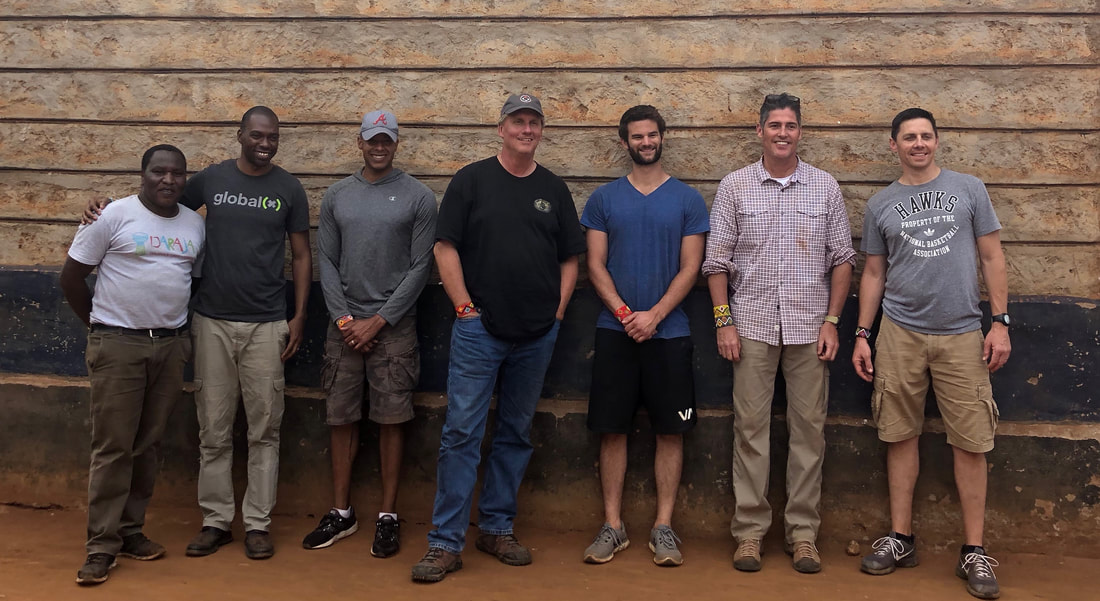
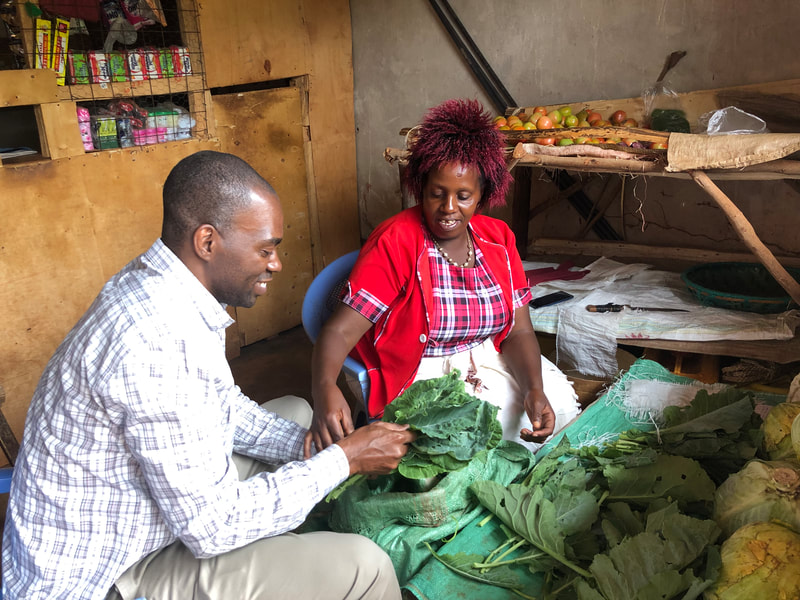
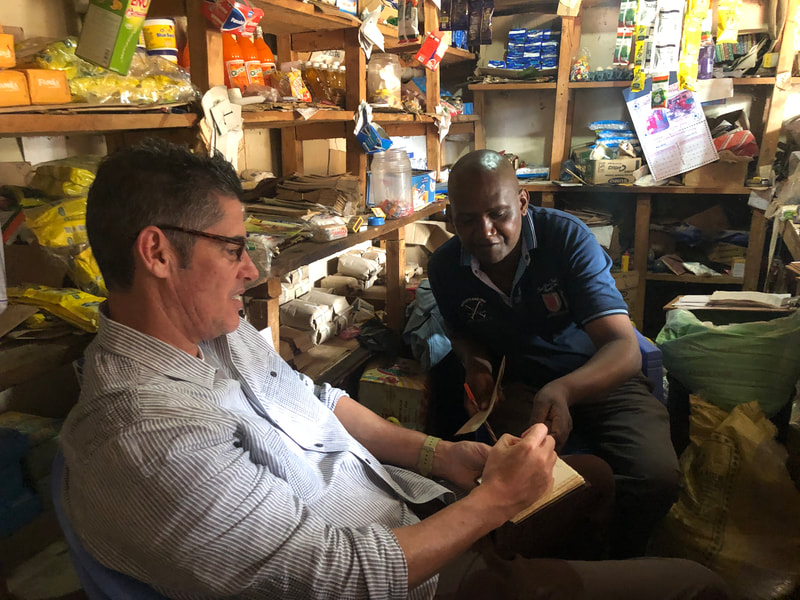
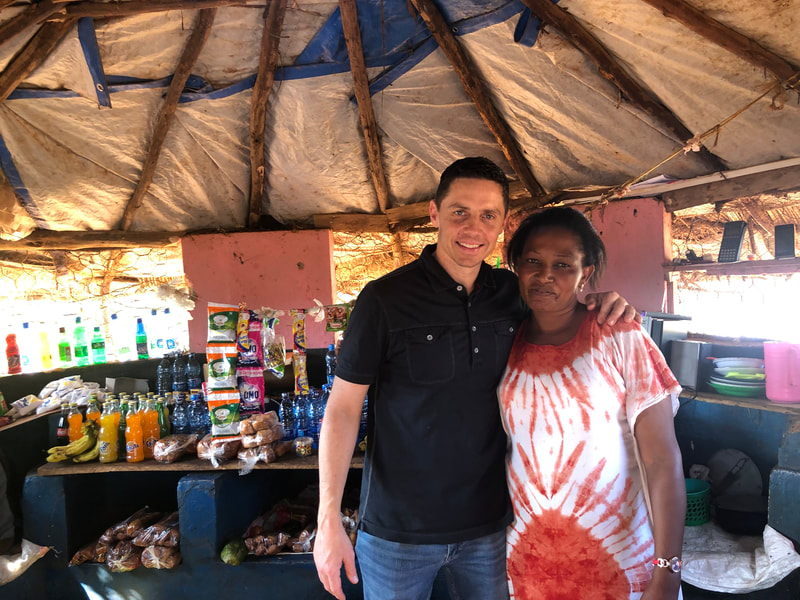
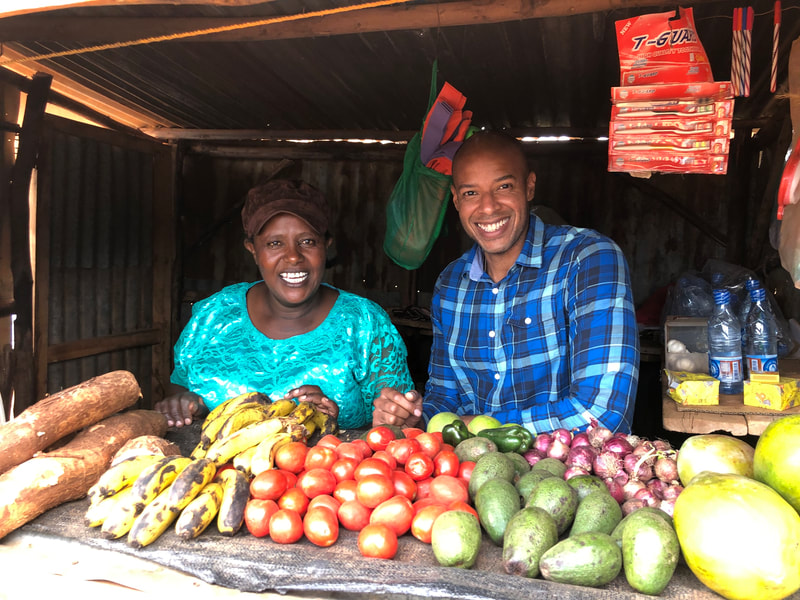
 RSS Feed
RSS Feed